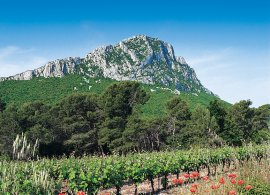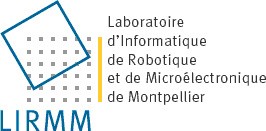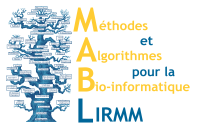| 9h | Bus from Montpellier centre to Hameau de l'Etoile |
| 10h | Café & croissants |
| 10h50 | Bienvenue |
| 11h - 12h15 | Information Theory |
| 11h |
Beyond 'event horizons' in early evolution Mike Steel, University of Canterbury, New Zealand. Slides |
| 11h25 |
Equivalence of Maximum Parsimony and Maximum Likelihood revisited Mareike Fischer, University of Canterbury, New Zealand. Slides |
| 11h50 |
Identifiability of models from parsimony-informative pattern frequencies John Rhodes, University of Kansas, USA. Slides |
| 12h15 | Déjeuner |
| 13h45 - 15h25 | Models |
| 13h45 |
Realism and Instrumentalism in theoretical models of molecular evolution David Penny, Massey University, New Zealand. Slides |
| 14h10 |
Probabilistic models of the evolution of the rate of evolution Stéphane Guindon, University of Auckland, New Zealand. Slides |
| 14h35 |
Quantifying the Time Irreversibility of the Nucleotide Substitution Process Federico Squartini, Max Planck Institute, Germany. Slides |
| 15h |
Estimating the contribution of sequence context to nucleotide substitution rate heterogeneity Helen Lindsay, Australian National University, Australia. Slides |
| 15h25 - 16h | Thé & gateaux |
| 16h - 17h45 | Models & Algorithms |
| 16h |
Using the best model! Reconstructing the worst tree... Liat Shavit-Grievink, Massey University, New Zealand. Slides |
| 16h10 |
Awesome Matrices and Markov models in Phylogenetics Steffen Klaere, Center for Integrative Bioinformatics Vienna, Austria. Slides |
| 16h20 |
A new phylo-HMM paradigm to search for sequences Jean-Baka Domelevo-Entfellner, LIRMM - CNRS, France. Slides |
| 16h30 |
Modelling heterogeneity in nucleotide sequence evolution Simon Whelan, University of Manchester, UK. Slides |
| 16h55 |
Sampling trees with a fixed number of leaves Tanja Gernhard, Technische Universität München, Germany. Slides |
| 17h20 |
Simultaneous estimation of alignments and trees Tandy Warnow, University of Texas, USA. Slides |
| 17h45 |
A more realistic approach to simulating heterotachy and its effect on phylogenetic accuracy Christoph Mayer, Ruhr Universität Bochum, Germany. Slides |








